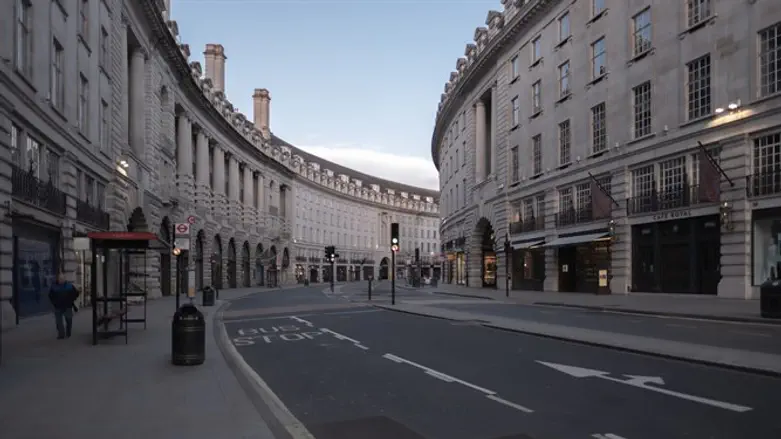
UK Prime Minister Boris Johnson Saturday announced that London and the South East would be subject to a new “Tier 4” lockdown, cancelling the holiday amnesty for those areas and reducing it to just Christmas Day for the rest of the country, due to a new variant of the virus he said was spreading “significantly more easily” among the population.
Time For Recovery UK released a statement calling on Secretary of State for Health and Social Care Matt Hancock to release more details about the strain, which they say is not new at all, but has been around since at least September.
According to the results of a study released last month, published in the peer-reviewed journal Nature Communications, the coronavirus is mutating rapidly as it spreads around the world, but none of the identified mutations were associated with higher rates of transmission.
Reuters noted that the study commenced this spring and that preliminary results were made public as early as May – and even at that stage, scientists had identified at least 12,706 mutations of COVID-19.
"On Tuesday December 15th, Professor Nick Loman of the COVID-19 Genomics UK (COG UK) consortium, identified the new set of mutations as VUI – 202012/0," Recovery writes. "He confirmed that it is not new, as COG UK identified it in September, and there is no proof that it is more infectious. As Professor Sharon Peacock, COG Director, pointed out: 'We are still dealing with very thin evidence at the moment about this variant.'
"Dr. Maria van Kerkhove, the technical lead of COVID-19 response and the Head of Emerging Diseases and Zoonosis Unit at World Health Organization, has also confirmed that the strain involved has been circulating for many months, though she referred to it as N501Y."
Recovery is requesting Matt Hancock answer these questions:
- "Why did he announce this as a new strain on the eve of the tier review when it appears to have been circulating for several months (and may have existed for months more before it was identified)?
- Why has he made headlines with the news that it’s more infectious when the experts who identified the strain say that we don’t have evidence for that yet?
- Will he publish the evidence he has for that so his claims can be independently verified?
- In the words of the Washington Post, 'At a news conference Monday evening, neither Hancock nor England’s Chief Medical Officer, Chris Whitty, released enough data to help the public understand the significance of the new variant.' Does he now regret the way that this announcement was handled, given that it has attracted international criticism?
- With millions of lives and livelihoods at stake, does he now consider that the statement he made to Parliament about the ‘new’ strain may have been misleading?
- Does he retain confidence in the Government advisers who briefed him on it?
- With even the experts at the WHO who are responsible for tackling the virus apparently confused by the information that the DHSC has provided over the details of the ‘new’ strain, will he remind his department to prioritize accuracy and the clear communication of the known facts over sensationalist language that makes headlines?"
“'There is a lot of trivial diversity in the spike protein. Over 20,000 variants have been reported,' commented Professor David Livermore, Professor of Medical Microbiology at the University of East Anglia. 'What is the hard evidence that this new variant really is so different against this background of great diversity?'
"Apparently VUI202012/0 was first found in September. It’s not clear where it came from or how long it had existed previously. The delay before it expanded doesn’t fit with super-infectiousness. Any variant of SAR COV-19 might expand swiftly because it gets into a part of the country which has had a relatively low prior exposure to SARS-CoV2 – like Kent or East Anglia – rather than because it has any particular biological advantage. As ever, talk of ‘exponential spread’ is misleading. We have now repeatedly seen that as exposure rises, spread slows.”
Recovery Campaign Director Jon Dobinson commented, “The evidence suggests that Matt Hancock may have needlessly terrified millions of people by giving misleading information about a variant of the virus which has existed for months.
"With millions of lives and livelihoods at stake, it is imperative that the Government is seen to be carrying out a balanced and responsible public health campaign. This looks like irresponsible scaremongering.
"It increasingly seems as though Matt Hancock and his advisors are carrying out an all-out marketing campaign for harsh restrictions rather than taking a balanced and proportionate approach. It is now clear that he and the Government have been guilty of hugely damaging errors in tackling this virus.
"Are they trying to sustain the panic to avoid being held to account for the damage they have done? That would be criminally irresponsible, given the damage that their actions are causing. But it is increasingly hard to interpret their actions in any other way.”
